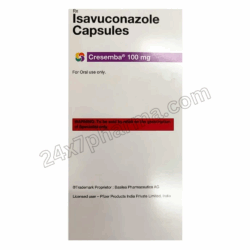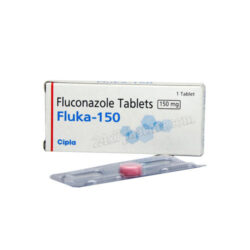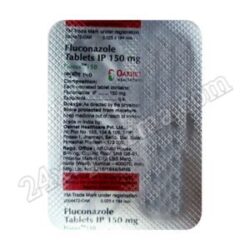Fungal Infections
Showing 1–16 of 22 resultsSorted by latest
CRESEMBA 100MG CAPSULE
Original price was: $876.$796Current price is: $796.TERBICIP 250 Tablet 15’s
Original price was: $21.$18Current price is: $18.FLUKA 150mg Capsule 3’s
Original price was: $7.$6Current price is: $6.ZOCON DT 100mg Tablet 12’s
Original price was: $7.$6Current price is: $6.Mycoderm C Dusting Powder 100gm
Original price was: $18.$15Current price is: $15.Kezolin Lotion 100ml
Original price was: $16.$14Current price is: $14.Flucos 150 Tablet 18’s
Original price was: $13.$11Current price is: $11.Sebowash Shampoo 100ml
Original price was: $16.$13Current price is: $13.Grisovin FP 250mg Tablet 30’s
Original price was: $7.$6Current price is: $6.Forcan 200mg Tablet 12’s
Original price was: $16.$13Current price is: $13.Itaspor 100mg Capsule 21’s
Original price was: $17.$14Current price is: $14.Itaspor 200mg Capsule 7’s
Original price was: $15.$12Current price is: $12.Fungal infections are more common than you might think. It is estimated that over 35% of the world’s population will suffer from a fungal infection at some point. While most fungal infections are relatively harmless and can be treated easily, some can be serious and even life-threatening. Here’s what you need to know about these pesky infections.
What are Fungal Infections?
A fungal infection is an infection caused by a fungus. While there are many different types of fungi, the most common fungus that causes conditions is called dermatophyte. Dermatophyte fungi thrive in warm, moist environments and can often be found in locker rooms, swimming pools, and showers.
These fungi enter the body through minor cuts or breaks in the skin and then begin to grow and multiply. The resulting infection can cause redness, itching, flaking, and burning. If left untreated, fungal infections can spread to other parts of the body and become quite severe.
There are many fungal infections, but some of the most common include athlete’s foot, jock itch, ringworm, and candidiasis (aka “yeast” infections).
Treatment
Fortunately, most fungal infections can be treated relatively easily with over-the-counter antifungal medications. These come in creams, powders, or sprays and are applied to the affected area. For more severe infections, your doctor may prescribe oral antifungal medication.
Prevention is Key
The best way to prevent fungal infection is to avoid places where fungi thrive. This means avoiding places like locker rooms, swimming pools, and showers if you have an open wound. It would help if you also practiced good hygiene by washing your hands regularly and showering after you’ve been sweating profusely. Wearing clean socks and underwear is also essential, as this helps to keep your skin dry and free from moisture.
Fungal infections are more common than you might think, but luckily most of them can be treated easily with over-the-counter medications. However, it’s still important to take measures to avoid getting an infection in the first place by avoiding places where fungi thrive and practicing good hygiene habits. If you get a fungal infection, treat it promptly so it doesn’t have a chance to spread.
















